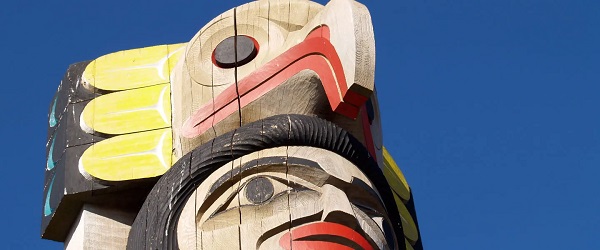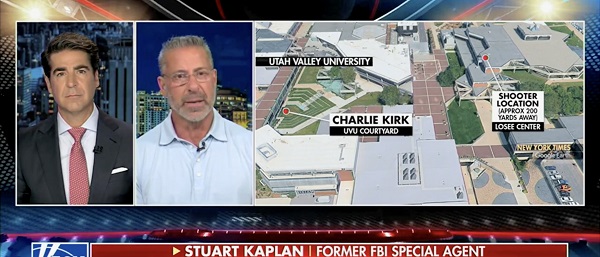News
Are You Attracting Thieves To Your Valuables? Tips To Protect Yourself
By Sheldon Spackman
(originally published August 9, 2017)
Here are some interesting… well maybe some disturbing facts RCMP and Citizens On Patrol discovered in Red Deer this summer.
During Westerner Days last month, over the period of two days, Mounties and volunteers with Citizens on Patrol checked vehicles in the Westerner Park parking lot to see which vehicle owners were leaving themselves vulnerable to smash and grab crimes.
Although members and volunteers did not try to open any doors or touch the vehicles other than leaving a flyer under the wiper blade, a significant portion were found to be attractive targets for criminals.
Two hundred vehicles were checked on July 22nd and 81 more on July 23rd.
More thank half passed! 56 percent were found to be free of any visible temptations for criminals such as cash, electronics or other valuables in plain site.
But that means nearly half did not pass! 44 percent were found to be vulnerable to a smash and grab crime.
36 vehicles had possessions or cash in plain view
19 had visible electronics
55 had garage door openers in plain site
9 had the keys left inside!
Constable Sean Morris with the Red Deer RCMP says “Citizens continue to express their concern about property crimes, but many also continue to make choices that create attractive targets for smash and grab thefts. Criminals prowl parking lots looking for easy targets – why would you tempt them to smash your windows or steal your vehicle?”
We found some tips to consider every time you leave your vehicle. Here are the top ten tips to protect your vehicle and its contents while unattended from the Insurance Bureau of Canada…
- Ensure your doors are always locked and the key is in your pocket
- Always park in well-lit areas
- Always roll up your car windows
- Never leave money in plain sight
- Put shopping bags and other parcels in the trunk
- Ensure your GPS and other electronic devices are out of sight
- Keep your vehicle registration certificate and proof of insurance on you
- Take your cellphone with you
- Never leave your vehicle running when unattended
- If you frequently park in the same parking lot, park in a different spot each day.
For more info, tips and to rate your vehicle, go to the Insurance Bureau of Canada web site.
And here’s some explanation from the Calgary Police Service.
- Lock it up. Close the windows, lock the doors and the trunk, and take your keys with you – never leave your vehicle unlocked, even for the few minutes it takes to duck into a store or run back into the house. And don’t hide a key on the vehicle – criminals know ALL the hiding spots.
- Turn it off. Never leave your vehicle idling alone, even if you lock the doors. It costs the environment in emissions, and it could cost you when a criminal bypasses the door lock in seconds.
- Hide your valuables. Wherever and whenever you park, remove your valuables – including any removable stereos. If that’s not practical (you’re in the middle of a shopping day, for example), hide the valuables in the trunk, out of sight, and then move the vehicle to a different place in the parking lot. Thieves watch parking lots to see who’s stashing shopping bags and then heading back into the mall.
- Stow it right. If you have a garage, use it and lock it. If you don’t, choose a parking spot that’s as well lit and well travelled as possible, within sight of your windows.
- Think security. If your vehicle has an alarm, use it. If it doesn’t, consider installing one, or at least using an anti-theft device such as a steering-wheel locking bar. These items can deter some criminals, and can delay others. If your vehicle is especially attractive to criminals, consider installing a security system such as an electronic vehicle disabling device, a hood-locking device or a location tracking system.
- Protect yourself. Never leave any identifying information, such as your name, address, phone number or vehicle registration/insurance in the vehicle. Carry it in your wallet or purse instead, and never leave these items in the vehicle. You’ll also need the registration and insurance details in case the vehicle is stolen, so it’s a great idea to make an extra copy of these documents, to keep at home.
- Report it! If you see suspicious people in or around vehicles, call the Police Service at 403-343-5575. And if your vehicle is broken into or stolen, report it to police right away, regardless of loss or insurance coverage. Break-ins are rarely isolated – reporting them immediately with as much detail as possible can help police in their investigation.
Internet
It’s only a matter of time before the government attaches strings to mainstream media subsidies

Misinformation is not exclusive to alternative online news organizations
In a previous world, whether they succeeded or failed at that was really no one’s business, at least provided the publisher wasn’t knowingly spreading false information intended to do harm. That is against the law, as outlined in Section 372 of the Criminal Code, which states:
“Everyone commits an offence who, with intent to injure or alarm a person, conveys information that they know is false, or causes such information to be conveyed by letter or any means of telecommunication.”
Do that, and you can be imprisoned for up to two years.
But if a publisher was simply offering poorly researched, unbalanced journalism, and wave after wave of unchallenged opinion pieces with the ability to pervert the flow of information and leave the public with false or distorted impressions of the world, he or she was free to do so. Freedom of the press and all that.
The broadcasting world has always been different. Licensed by the Canadian Radio-television and Telecommunications Commission (CRTC), content produced there must, according to the Broadcasting Act, be of “high standard”—something that the CRTC ensures through its proxy content regulator, the Canadian Broadcast Standards Council (CBSC).
Its most recent decision, for instance, condemned Sportsnet Ontario for failing to “provide a warning before showing scenes of extraordinary violence” when it broadcast highlights of UFC mixed martial arts competitions during morning weekend hours when children could watch. If you don’t understand how a warning would have prevented whatever trauma the highlights may have caused or how that might apply to the internet, take comfort in the fact that you aren’t alone.
The CRTC now has authority over all video and audio content posted digitally through the Online Streaming Act, and while it has not yet applied CRTC-approved CBSC standards to it, it’s probably only a matter of time before it does.
The same will—in my view—eventually take place regarding text news content. Since it has become a matter of public interest through subsidies, it’s inevitable that “high standard” expectations will be attached to eligibility. In other words, what once was nobody’s business is now everybody’s business. Freedom of the, er, press and all that.

Alberta Premier Danielle Smith
Which raises the point: is the Canadian public well informed by the news industry, and who exactly will be the judge of that now that market forces have been, if not eliminated, at least emasculated?
For instance, as former Opposition leader Preston Manning recently wondered on Substack, how can it be that “62 per cent of Ontarians,” according to a Pollara poll, believe Alberta Premier Danielle Smith to be a separatist?
“The truth is that Premier Smith—whom I’ve known personally for a long time—is not a separatist and has made that clear on numerous occasions to the public, the media, and anyone who asks her,” he wrote.
I, too, have been acquainted for many years with the woman Globe and Mailcolumnist Andrew Coyne likes to call “Premier Loon” and have the same view as Manning, whom I have also known for many years: Smith is not a separatist.
Manning’s theory is that there are three reasons for Ontarians’ disordered view—the first two being ignorance and indifference.
The third and greatest, he wrote, is “misinformation—not so much misinformation transmitted via social media, because it is especially older Ontarians who believe the lie about Smith—but misinformation fed into the minds of Ontarians via the traditional media” which includes CBC, CTV, Global, and “the Toronto-based, legacy print media.”
No doubt, some members of those organizations would protest and claim the former Reform Party leader is the cause of all the trouble.
Such is today’s Canada, where the flying time between Calgary and Toronto is roughly the same as between London and Moscow, and the sense of east-west cultural dislocation is at times similar. As Rudyard Kipling determined, the twain shall never meet “till earth and sky stand presently at God’s great judgment seat.”
This doesn’t mean easterners and westerners can’t get along. Heavens no. But what it does illustrate is that maybe having editorial coverage decisions universally made in Hogtown about Cowtown (the author’s outdated terminology), Halifax, St John’s, Yellowknife, or Prince Rupert isn’t helping national unity. It is ridiculous, when you think about it, that anyone believes a vast nation’s residents could have compatible views when key decisions are limited to those perched six degrees south of the 49th parallel within earshot of Buffalo.
But CTV won’t change. Global can’t. The Globe is a Toronto newspaper, and most Postmedia products have become stripped-down satellites condemned to eternally orbit 365 Bloor Street East.
The CRTC is preoccupied with finding novel ways to subsidize broadcasters to maintain a status quo involving breakfast shows. So we can’t expect any changes there, nor can we from the major publishers.
Which leaves the job to the CBC, whose job it has always been to make sure the twain could meet. That makes it fair to assume Manning will be writing for many years to come about Toronto’s mainstream media and misinformation about the West.
(Peter Menzies is a commentator and consultant on media, Macdonald-Laurier Institute Senior Fellow, a past publisher of the Calgary Herald, a former vice chair of the CRTC and a National Newspaper Award winner.)
Business
Elon Musk’s X tops Canadian news apps, outperforming CBC, CTV

From LifeSiteNews
While X sits at number one, CBC News, Canada’s crown news agency, ranks at number 9 in news apps. Similarly, CTV News is ranked at number 10.
Elon Musk’s X, formerly known as Twitter, now ranks number one in news apps for Canadians, outranking mainstream media outlets.
In an August 7 post, Elon Musk, the owner of X, celebrated X placing first among news apps downloaded from the app store in Canada, as Canadians increasingly turn to alternative media sources amid ongoing media censorship and bias.
“This indicates that a very large segment of the Canadian population no longer trusts the mainstream media,” Campaign Life Coalition’s Jack Fonseca told LifeSiteNews.
“They view legacy news outlets like the CBC as nothing more than propaganda factories, paid by the Liberal government to spew forth its narratives,” he continued.
Since X was bought by Musk in 2023, the platform has relaxed its censorship policies, allowing for a more open discussion of controversial topics.
While by no means perfect, the app has become a valuable method of sharing censored information, especially in Canada, where most media outlets receive funding from the Liberal government.
“Generally speaking, free speech reigns on X, and that’s what people want,” Fonseca declared. “They want the ability to hear both sides of an issue, no matter how controversial. The freedom to say what they believe and not be censored.”
“The CBC, CTV, Toronto Star and all the other propaganda machines do not allow both sides of an issue to be aired in a fair or balanced manner,” he continued.
Indeed, while X sits at number one, CBC News, Canada’s crown news agency, ranks at number 9 in news apps. Similarly, CTV News is ranked at number 10.
CBC’s low ranking is likely linked to the fact that the outlet receives over a billion dollars in funding from the Liberal government each year. Liberal funding, in addition to biased reporting, has led many Canadians to consider the outlet nothing more than an arm of the Liberal party.
This January, the watchdog for the CBC ruled that the state-funded outlet expressed a “blatant lack of balance” in its covering of a Catholic school trustee who opposed the LGBT agenda being foisted on children.
There have also been multiple instances of the outlet pushing leftist ideological content, including the creation of pro-LGBT material for kids, tacitly endorsing the gender mutilation of children, promoting euthanasia, and even seeming to justify the burning of mostly Catholic churches throughout the country.
However, many Canadians are awakening to the lies and half-truths perpetuated by legacy media outlets and are instead turning to alternative media sources.
According to a 2024 global “trust” index, the majority of Canadians believe that legacy media journalists and government officials are not trustworthy and are “lying to them” regularly.
Fonseca stressed the importance of “the rapidly growing independent media orgs (…) like LifeSiteNews, Rebel News, the Western Standard, Juno News and Epoch Times. But even these alternative media rely significantly on X to amplify their content.”
“Undoubtedly, the Carney regime will try to shut down X, or force censorship on the platform through legislation and regulation, so we must fight and pray to ensure our shill globalist Prime Minister doesn’t succeed,” he warned.
“Carney would have us all become slaves to the state, without any voice or real power. Although X isn’t perfect, we need it desperately if we’re to have any hope of Canada staying ‘glorious and free,’” Fonseca declared.
-

 Censorship Industrial Complex9 hours ago
Censorship Industrial Complex9 hours agoFreedom of speech under threat on university campuses in Canada
-

 Business9 hours ago
Business9 hours agoCarney engaging in Orwellian doublethink with federal budget rhetoric
-

 Energy9 hours ago
Energy9 hours agoCanada’s LNG breakthrough must be just the beginning
-

 Business10 hours ago
Business10 hours agoCourt’s ‘Aboriginal title’ ruling further damages B.C.’s investment climate
-

 Alberta2 days ago
Alberta2 days agoAlberta deserves a police force that actually reflects its values
-

 Crime2 days ago
Crime2 days agoCharlie Kirk Killer’s Ammo Reportedly Marked With Transgender, Anti-‘Fascist’ Messages
-

 Alberta2 days ago
Alberta2 days agoOPEC+ chooses market share over stability, and Canada will pay
-

 Crime2 days ago
Crime2 days agoFormer FBI Agent Says Charlie Kirk Assassination May Have Been ‘A Professional Hit’





